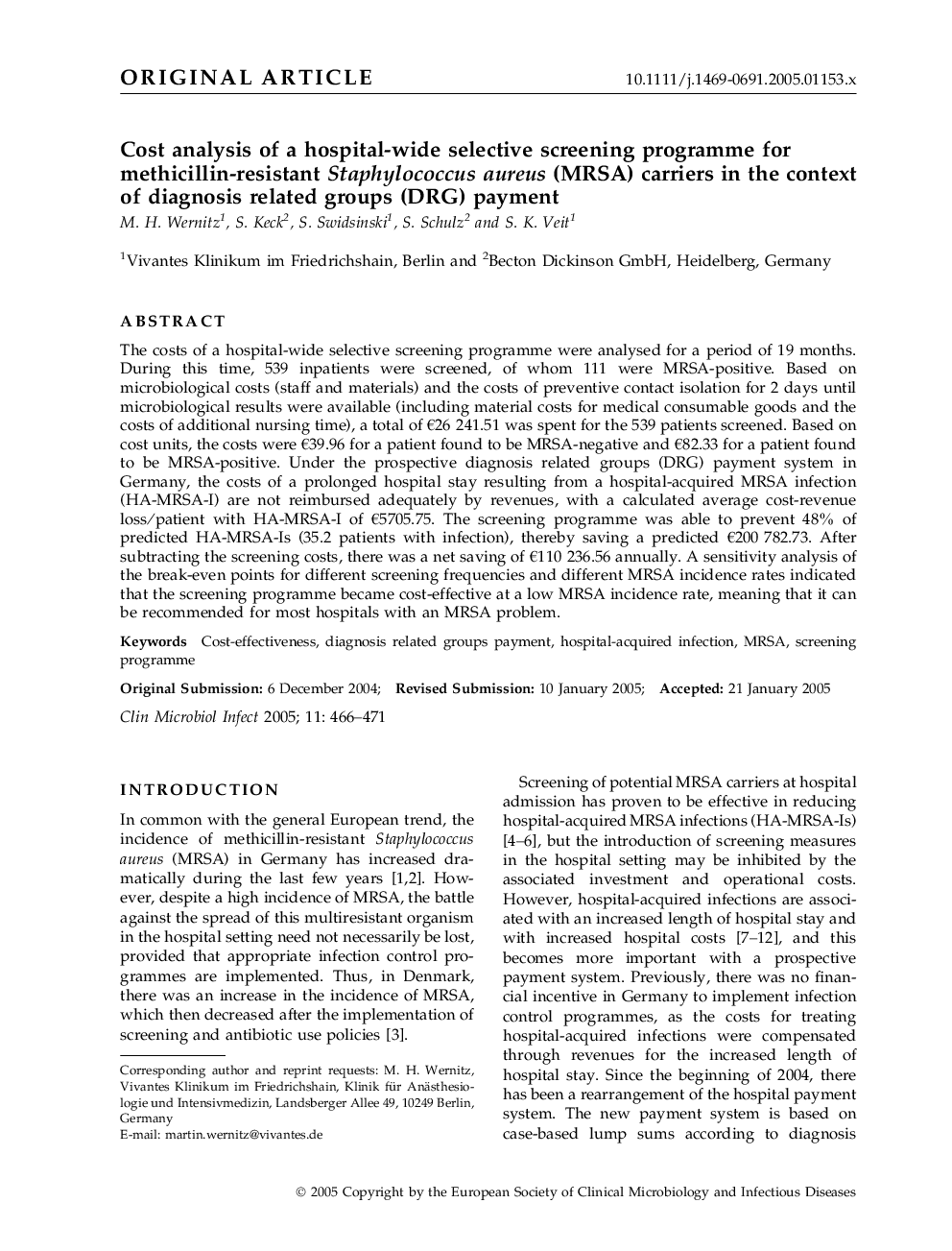| Article ID | Journal | Published Year | Pages | File Type |
|---|---|---|---|---|
| 9276053 | Clinical Microbiology and Infection | 2005 | 6 Pages |
Abstract
The costs of a hospital-wide selective screening programme were analysed for a period of 19 months. During this time, 539 inpatients were screened, of whom 111 were MRSA-positive. Based on microbiological costs (staff and materials) and the costs of preventive contact isolation for 2 days until microbiological results were available (including material costs for medical consumable goods and the costs of additional nursing time), a total of â¬26 241.51 was spent for the 539 patients screened. Based on cost units, the costs were â¬39.96 for a patient found to be MRSA-negative and â¬82.33 for a patient found to be MRSA-positive. Under the prospective diagnosis related groups (DRG) payment system in Germany, the costs of a prolonged hospital stay resulting from a hospital-acquired MRSA infection (HA-MRSA-I) are not reimbursed adequately by revenues, with a calculated average cost-revenue loss/patient with HA-MRSA-I of â¬5705.75. The screening programme was able to prevent 48% of predicted HA-MRSA-Is (35.2 patients with infection), thereby saving a predicted â¬200 782.73. After subtracting the screening costs, there was a net saving of â¬110 236.56 annually. A sensitivity analysis of the break-even points for different screening frequencies and different MRSA incidence rates indicated that the screening programme became cost-effective at a low MRSA incidence rate, meaning that it can be recommended for most hospitals with an MRSA problem.
Related Topics
Life Sciences
Immunology and Microbiology
Microbiology
Authors
M.H. Wernitz, S. Keck, S. Swidsinski, S. Schulz, S.K. Veit,
